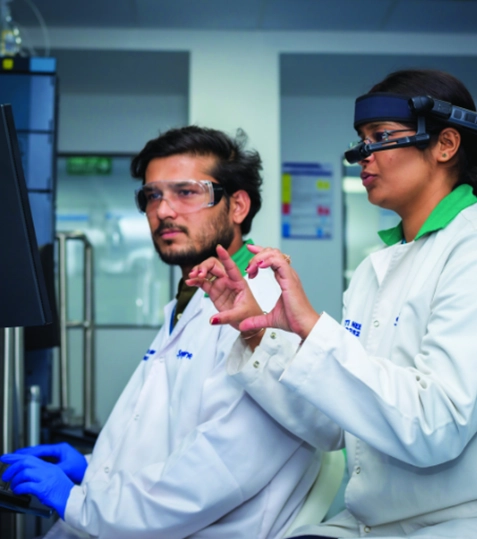
Syngene has reached a significant milestone in its sustainability journey with the validation of our science-based greenhouse gas (GHG) emissions reduction targets by the Science Based Targets Initiative (SBTi). This endorsement confirms that our goals meet the initiative’s stringent criteria and are aligned with the Paris Agreement’s objective of limiting global warming to 1.5°C. By joining over 7,000 companies globally committed to setting emissions reduction targets based on climate science, Syngene further strengthens its commitment to sustainable and responsible business practices.
Syngene will adopt a multi-faceted approach, including investing further in energy savings projects, adopting renewable energy sources and exploring new technologies wherever possible. We have defined a decarbonization pathway that will help to reduce emissions across the value chain.

Science Based Targets initiative (SBTi) is a joint partnership between Carbon Disclosure Project, the United Nations Global Compact, World Resources Institute and the Worldwide Fund for Nature. Science-based targets provide a clear pathway for companies to reduce greenhouse gas (GHG) emissions to mitigate the worst impacts of climate change. Science-based targets give companies a clearly defined path to reduce greenhouse gas emissions in line with limiting global warming to 1.5°C. They define how much and how quickly a business must reduce its emissions to be in line with the Paris Agreement goals.
The different sources of greenhouse gas (GHG) emissions: Scope 1, 2 and 3 emissions is a way of categorising the different kinds of carbon emissions a company generates in the course of running its business.